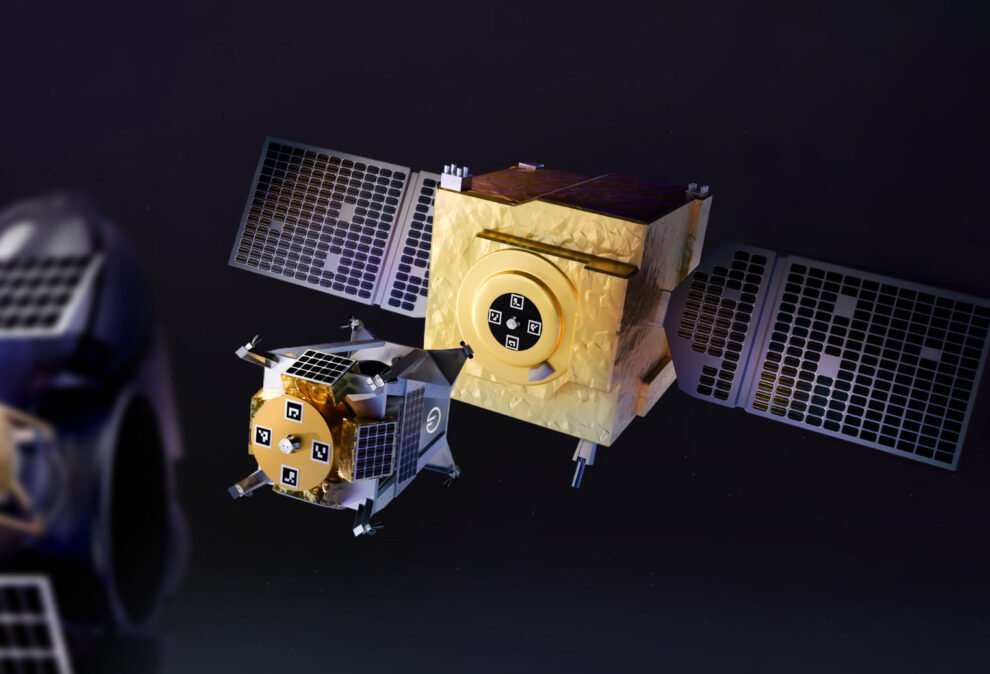In a significant development for the space industry, Orbit Fab has disclosed the pricing for its satellite refueling ports, a key component in the emerging market of in-space servicing, maintenance, and refueling of satellites. This announcement is expected to have a profound impact on satellite operations, potentially extending their lifespans and enhancing the sustainability of space operations.
Key Highlights:
- Pricing Unveiled: Orbit Fab announced that its RAFTI satellite refueling port will be priced at $30,000 per unit. This pricing strategy is based on comprehensive market research and aims to make in-space refueling a cost-effective option for satellite operators .
- Flat Rate for Hydrazine Refueling: The company has set a flat rate of $20 million for hydrazine fuel fill-ups in geostationary orbit (GEO), starting in 2025. This service targets the high costs associated with operating in GEO, offering a financially viable alternative to launching new satellites.
- RAFTI Integration and Adoption: The RAFTI port, a crucial component for refueling, has been designed into nearly 250 spacecraft, with Orbit Fab having contracts with both government and commercial entities. This wide adoption underscores the industry’s proactive approach to refueling and servicing capabilities.
- Comprehensive Refueling Services: Orbit Fab’s refueling service encompasses the entire process from hardware integration (RAFTI) and mission planning (via UMPIRE software) to the final fuel delivery. This full-service model is aimed at ensuring satellites can be refueled efficiently without needing to alter their operational orbits.
The Implications of Orbit Fab’s Pricing Strategy
Orbit Fab’s announcement is more than just a pricing strategy; it represents a pivotal shift towards sustainable and longer-lasting satellite operations. By making satellite refueling ports commercially available at a set price, Orbit Fab is addressing a critical need for extended satellite lifespans and reduced space debris. Their market-driven approach, coupled with transparent pricing, is poised to encourage broader adoption of refueling capabilities across the space industry.
What is In-Space Satellite Refueling?
Traditionally, once a satellite runs out of fuel, it becomes space debris. In-space refueling offers a solution to this problem. Companies like Orbit Fab are developing technologies that allow specialized spacecraft to dock with satellites in orbit and replenish their fuel supply. This extends the lifespan of satellites, reducing costs, and minimizing space debris.
Orbit Fab’s RAFTI Port
The RAFTI (Rapidly Attachable Fluid Transfer Interface) port is Orbit Fab’s standardized docking mechanism. It’s designed to be easily integrated into new satellites and is compatible with Orbit Fab’s refueling tankers. The company states the RAFTI port’s price is strategically based on similar components used in the satellite industry.
To ensure reliability in the harsh environment of space, the RAFTI port has successfully completed tests simulating extreme temperatures, vibration, and radiation.
The Future of Satellite Servicing
The announcement of the RAFTI port pricing is a significant milestone in in-space refueling. It makes the technology more accessible to satellite manufacturers and operators. With refueling, satellites can stay operational for longer, opening up new opportunities for missions ranging from Earth observation to deep-space exploration.
Addressing a Growing Market Need
The ability to refuel satellites in orbit could dramatically change how we manage satellite constellations. It offers the potential to extend missions, reduce costs over the satellite’s lifecycle, and decrease the volume of space debris by limiting the number of defunct satellites in orbit. Orbit Fab’s pricing announcement is a step towards making these benefits more accessible to satellite operators around the world.
Collaboration and Future Plans
Orbit Fab’s efforts are supported by collaborations with various space industry stakeholders, including government entities and commercial partners. The company’s innovative RAFTI port and comprehensive refueling services are expected to be integrated into a range of missions, demonstrating the viability and critical need for in-space refueling technologies.



















Add Comment